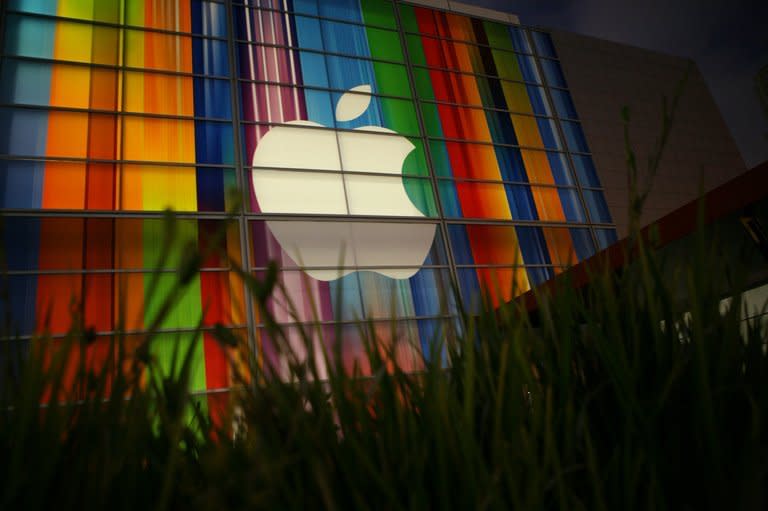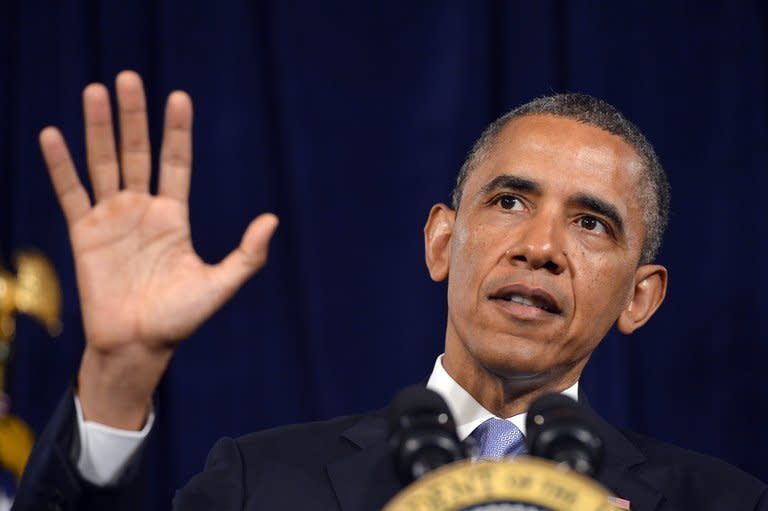Obama defends surveillance dragnet
President Barack Obama has defended US spy agency programs which trawl phone and Internet data as a "modest encroachment" on privacy needed to keep Americans safe from terrorism. "Nobody is listening to your telephone calls," Obama said, seeking to quell public disquiet after two days of explosive revelations hinting at the scope of a vast and classified government data mining operation. Obama, in San Jose, California, hit out at what he said was "hype" over reports the National Security Agency (NSA) logs details of millions of domestic calls, for possible later use in anti-terror operations. He also defended a program called PRISM, in which NSA and FBI agents are tapping into the servers of nine US Internet giants, including Facebook, Google, YouTube, Apple and others, as they try to subvert terror plots originating abroad. "This does not apply to US citizens. And it does not apply to people living in the United States," Obama said. Civil liberties and privacy groups have raised alarm at the two programs, reported by the Guardian and Washington Post newspapers, warning they are "Orwellian" and could be unconstitutional. Obama said he welcomed the debate, but warned the programs had previously been kept under wraps to avoid tipping off America's enemies and said they made only "modest encroachments" on privacy. "I think it's important to recognize that you can't have 100 percent security and also then have 100 percent privacy and zero inconvenience. We're going to have to make some choices as a society," he said. He repeatedly argued that Congress had been kept fully apprised of the activity and had voted to authorize it. Federal and secret intelligence courts were also used to present abuse, he said. The Washington Post, citing a career intelligence officer, reported late Thursday the NSA had direct access to Internet firm servers to track an individual's web presence via audio, video, photographs and emails. The paper said the leak came from an officer "with firsthand experience of these systems and horror at their capabilities." "They quite literally can watch your ideas form as you type," the officer was quoted as saying. Internet giants, however, denied opening their doors for US spy agencies. "We have never heard of PRISM," said Apple spokesman Steve Dowling. Facebook's chief security officer Joe Sullivan said the huge social network did not provide any access to government organizations. Experts said the program could be so close-held that only lawyers at the firms or a small number of administrators might know about it, or it could be going on covertly. "There is something deeply mysterious about this," said Joseph Hall, senior technologist with the Center for Democracy and Technology, a digital rights activist group. Despite possible embarrassment over the exposed US surveillance programs, Obama, meeting Chinese President Xi Jinping in California, raised the need for new "rules of the road" following the reports of a vast cyber spying operating by China. The US president ruled out any comparison between the alleged Chinese hacking of US commercial and military secrets and the National Security Agency programs. "I think it's important ... to distinguish between the deep concerns we have as a government on theft of intellectual property or hacks that enter our financial systems or critical infrastructure -- versus some of the issues that have been raised around NSA programs," Obama said. The White House denied that the drama of the last few days would undercut Obama's message. "This is a pretty good illustration of the type of conversation we want to have about respecting civil liberties and protecting the constitutional rights of the people that you govern," White House spokesman Josh Earnest said. Claims of the Internet spy operation broke as Washington reeled from a Guardian newspaper report on Wednesday detailing an apparent operation by the NSA to capture millions of domestic phone records.







